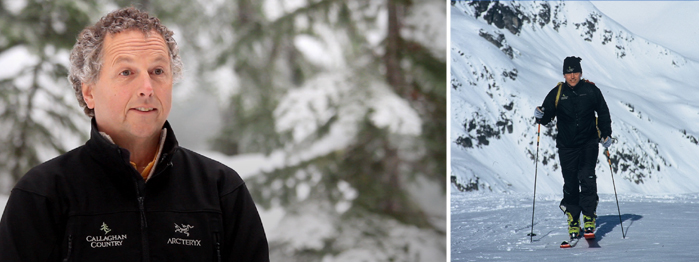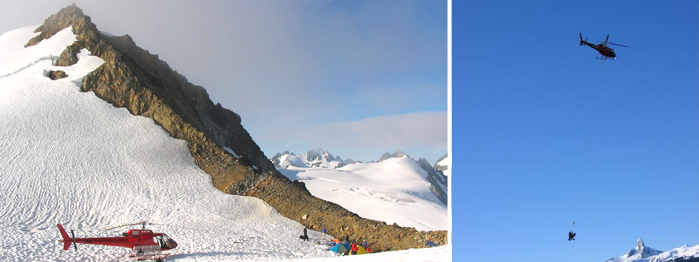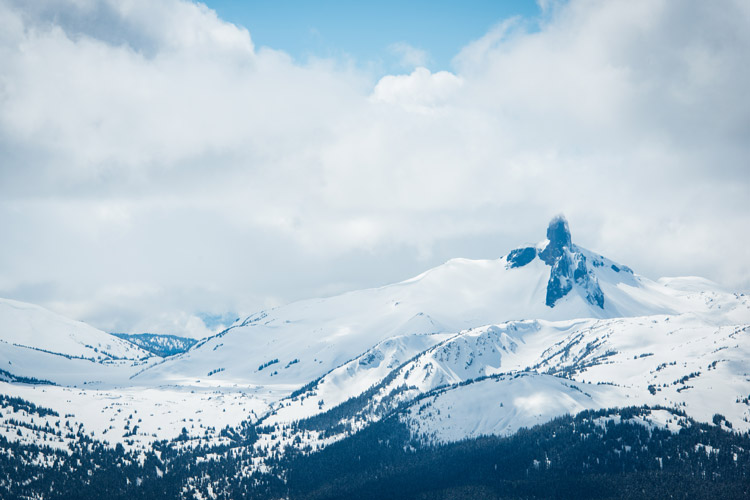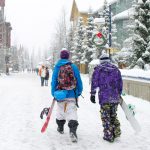
The Whistler backcountry is an escape—whether watching the sun glisten off snow-covered cedar branches or just inhaling the crisp silence of total solitude— there’s no better place to get away from the hustle and grind of everyday life.
As owner of Callaghan Country, an XC and backcountry ski lodge just south of Whistler, Brad Sills has been escaping for the past 32 years but that doesn’t mean he appreciates it any less today.
“Every day is like the first time,” Brad says. “That is what keeps me anchored to the place. There’s always different snow shapes or different light. The creek takes a different path or the trees cast a different silhouette. It comes down to wilderness and the sense of place that wilderness gives us.”

As Brad explains in this week’s Whistler Sabbatical video, time spent in the backcountry is richly rewarding – physically, mentally and spiritually. Unfortunately, for the inexperienced and unprepared it can also be dangerous.
Brad knows this all too well as he is also the manager of Whistler Search & Rescue, an organization of 24 volunteers who fearlessly venture beyond the ropes and off the beaten path every time someone needs assistance.
In 2010 Whistler S&R took part in 30 operations—everything from lost hikers or skiers to injured snowmobilers to avalanche burials. When the phone rings Brad and the S&R crew literally drop everything and rush out the door. “The numbers for 2011 don’t come out until April,” Brad says. “But we have had six calls since Christmas.”
Local snowpack conditions have been less than ideal lately and backcountry use is always on the rise. Search & Rescue recently sent out a press release urging backcountry users to be extremely cautious. The Insider caught up with Brad for a quick chat.
Whistler Insider – What do you do more of, Searching or Rescuing?
Brad Sills—I would say our workload is 50 percent split between the two. Winter is definitely when we get the bulk of our calls.
Insider—What is your most typical winter call?
Brad—People skiing out of bounds without the requisite knowledge, equipment or skill level.
Insider—You know as well as anyone how peaceful and beautiful the backcountry can be. Is it easy for people to be lulled into a sense of false security? What should people know?
Brad—I guess in a word it is ‘situational awareness’, knowing where one is in regard to the greater environment. The most common mistake is basically directional—people losing their bearings and figuring that they are traveling to one place when in fact they are going some place different.

Insider—Snowmobiling is a fast-growing sport locally, and snowmobile-related calls are going up for you guys, but does it help having that many more mobile people in the backcountry, are more people rescuing each other?
Brad—Not really. The face of recreation in BC is changing dramatically with the mechanization. What we are finding is when people get lost, where previously they would be close to their point of origin, now they can be hundreds of miles out in the backcountry.
Insider—Your team is all volunteer but rescue operations do incur costs with helis and supplies etc. Who pays?
Brad—Search and Rescue costs in British Columbia are borne 100% by the taxpayer.
Insider—What is the best advice to give someone about to venture out into the backcountry?
Brad—Always know where you are going, be prepared for the backcountry and have a backpack with the key essentials. In winter you must have avalanche skills training and listen to the experts. I think with a lot of people there is a belief that if you take a course or two and dig a few pits they feel they have the requisite knowledge. I know a guy who was a patroller in the 60s and a heli guide since—every day he is out studying snow—and even he got buried last week, full burial. There is always an element of unpredictability and surprise and when the pros tell you the danger is ‘considerable to extreme’ that’s when that unknown factor plays a larger role. It is not a time to be out there.
Insider— Thanks Brad. Have a great day.
So play safe out there kids and be alert. Brad Sills has been involved with Whistler Search & Rescue for 32 years and his team of volunteers are very good at what they do, heroes really, but I’m sure given the choice, they’d prefer to stay home on a Saturday night and watch Hockey Night in Canada.
The Canadian Avalanche Centre has bulletins and information that might save your life.
Whistler Search & Rescue also have a website, including a place to donate.
Photos courtesy Brad Sills and Whistler Search & Rescue


